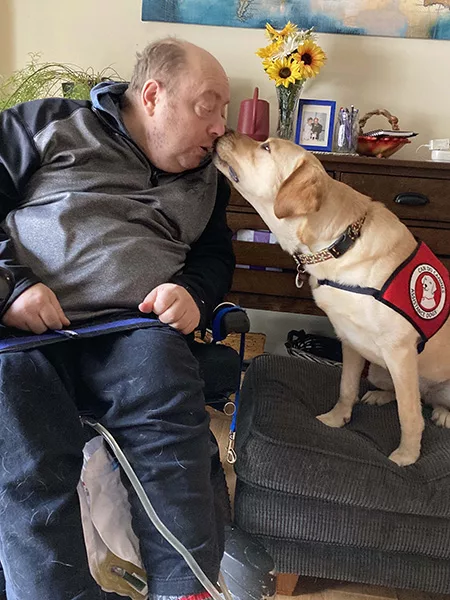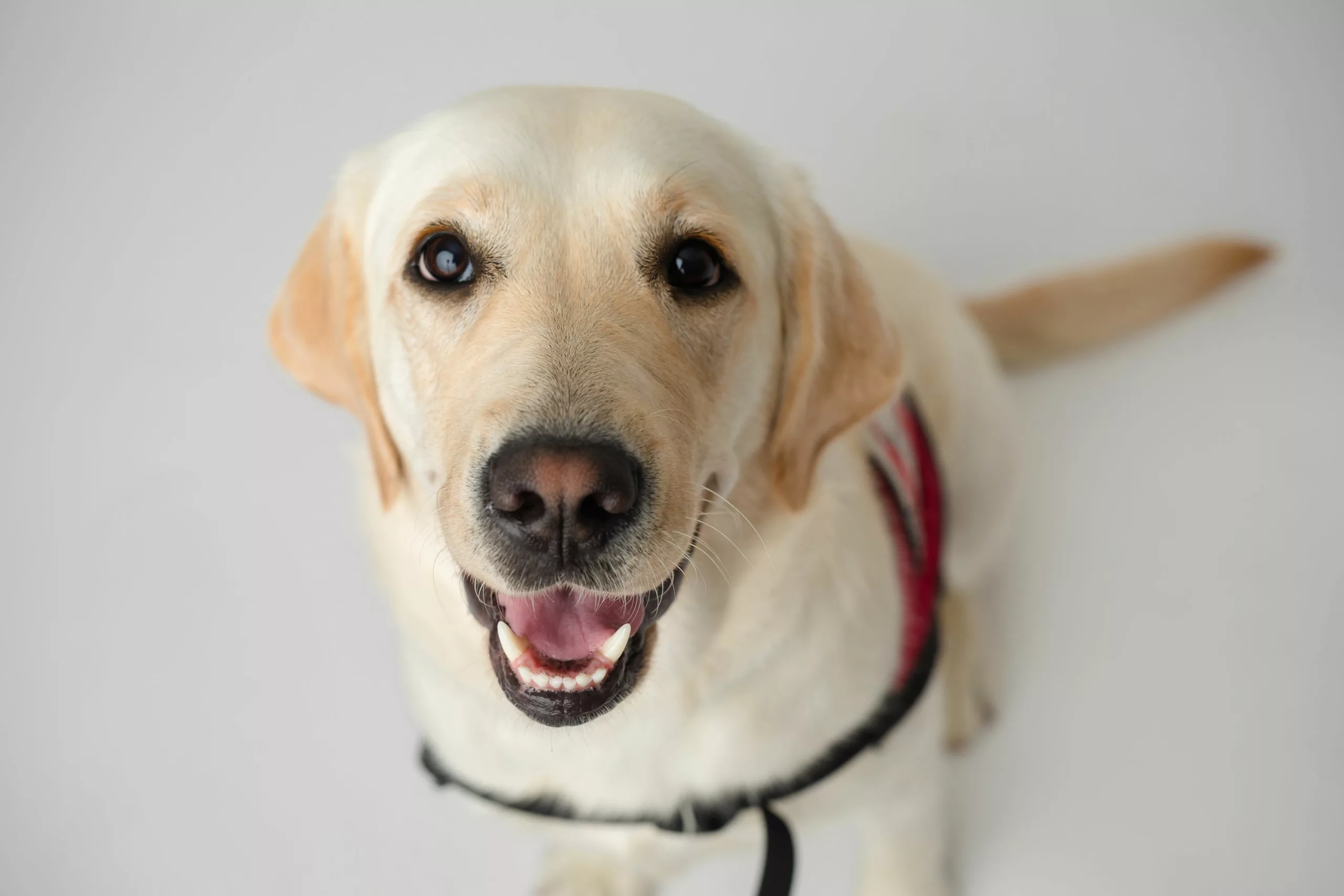Paul describes himself as “naturally clumsy.” But clumsiness, alone, had nothing to do with the reason for him wanting to apply to Can Do Canines for a Mobility Assist Dog.
In 2015, Paul started to feel ill and soon learned that his immune system was attacking his muscles and skin. Just as he was on the road to recovery, he caught fungal meningitis, putting him in a coma for 80 days. When he woke up, he learned the disease had invaded his spinal column, causing paralysis in his lower body.
Then, in 2019, his wife was diagnosed with cancer and passed away. Paul’s world shrunk, and his household included just him and his aging pet Springer Spaniel, Josie. He sums up these life changes, saying, “The worst thing was I had no real freedom. In order to do anything, I had to have a family member or somebody come to the house to do something with me, to take me anywhere.”
Paul considered Josie “very much the ruler of the house” and didn’t want her to have to compete with another dog for his attention. However, once she passed, Paul knew it was time for an assistance dog. His brother, who works in a prison and had heard about Can Do Canines through the prison-system grapevine, suggested the organization.
 Soon, Paul had a new partner in life: a 3 ½-year-old yellow Lab named Cider. With trained skills that include tugging open and closing doors, pressing access buttons, unloading the washing machine and dryer, and more, Cider does her tasks with “energy and gusto,” according to Paul. He says, “It’s exciting watching her get into what she does. She's just thrilled.”
Soon, Paul had a new partner in life: a 3 ½-year-old yellow Lab named Cider. With trained skills that include tugging open and closing doors, pressing access buttons, unloading the washing machine and dryer, and more, Cider does her tasks with “energy and gusto,” according to Paul. He says, “It’s exciting watching her get into what she does. She's just thrilled.”
One skill that Cider performs most regularly is picking up items for Paul. Beyond his normal clumsiness, Paul drops things a lot. Since he has to use his arms so much to accommodate his paraplegia, his overdeveloped front shoulder muscles are pulling his nerves forward. He explains, “By the end of a day, I can't use my right arm, I can't use my right hand.” By then, he has developed a burning pain, with his fingers often stuck in an achy, claw position. “Having Cider around to help me [has] just been terrific in easing the burden on that arm.”
Recently, Paul dropped his keys in a parking lot, but Cider was there to help. Paul says that otherwise, “I probably would've had to bum around until I could find somebody in the parking lot to help me get them. Just the ability not to have to count on other people has been great.”
He recalls another instance when an Amazon envelope slid under a bench outside his home. “There’s no way I could have gotten down that low to get that.” Instead, the gusto-filled Cider reached down and picked it up.
Acknowledging Cider’s intelligence too, Paul comments on how big her head feels when she’s lying on him, figuring she just has “lots of brains” for how smart she is. She has no problem focusing those brain cells on Paul and his needs. He shares that when they were at a busy pet store with many other animal guests, “She was just very good about minding her own business and keeping track of where I was.” He had relatives with them and says, “I don't think they quite believed it because they hadn't seen it, you know? I don't think until you see it, you really understand.”
But Paul understands the significance of everything Cider does. He wants to “thank anybody who contributed to her life. She's such a happy soul, I have to believe they are the nicest people in the world to pull this off and be disciplined about working with her and making her turn out the way she behaves so well.”
As for his sense of freedom these days, he says with gusto of Cider, “She gives me more confidence that I'll be able to do things.”
Thank you to all those who made this partnership possible:
Whelping Home — The Nervick Family
Great Start Home — Suzy Ahrens
Puppy Raiser — Federal Medical Center - Rochester
Special Thanks — Celeste Bjorlin, The Mannings, Traci Norum

 Dotty’s Deep Pressure Therapy Takes the Pressure off Meghan
Dotty’s Deep Pressure Therapy Takes the Pressure off Meghan




